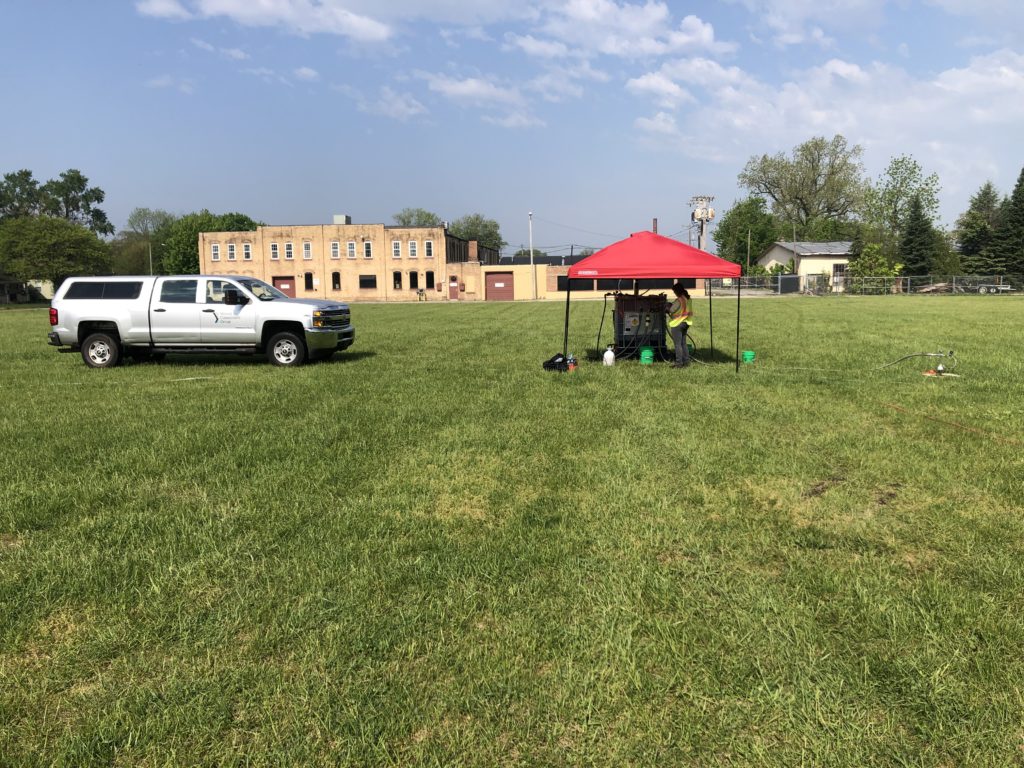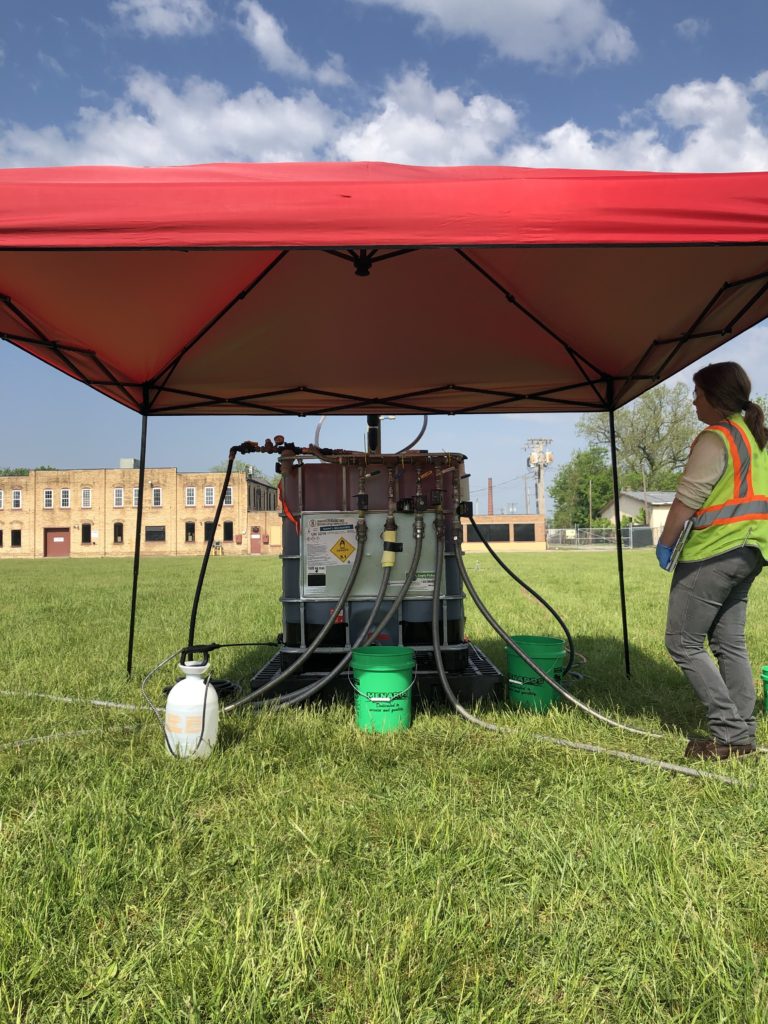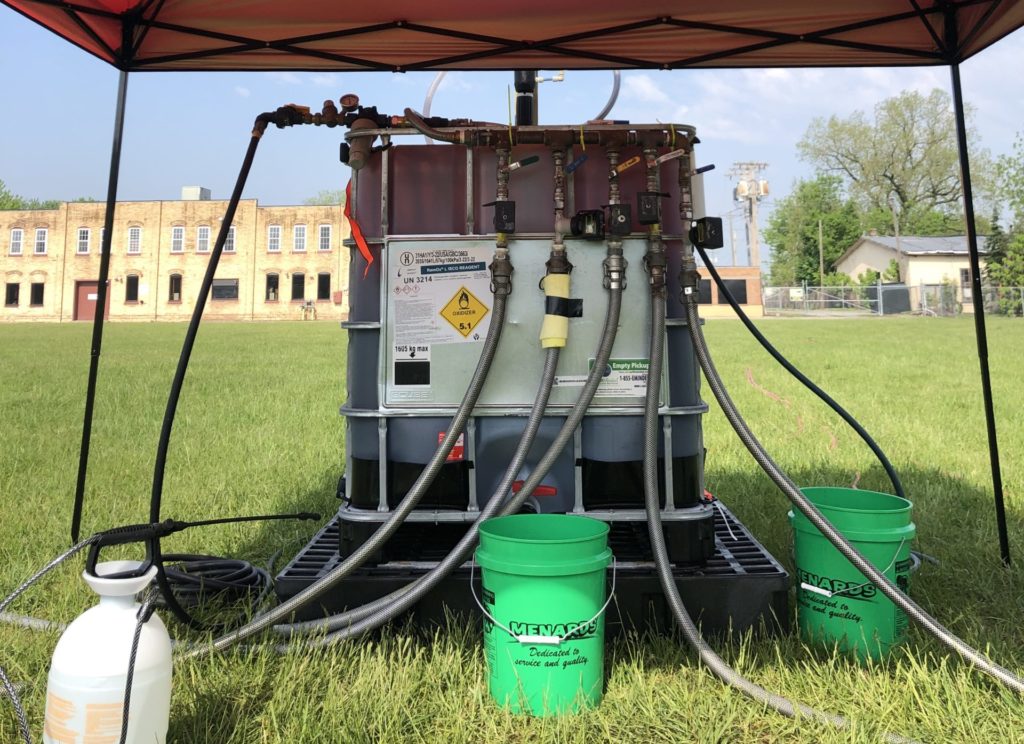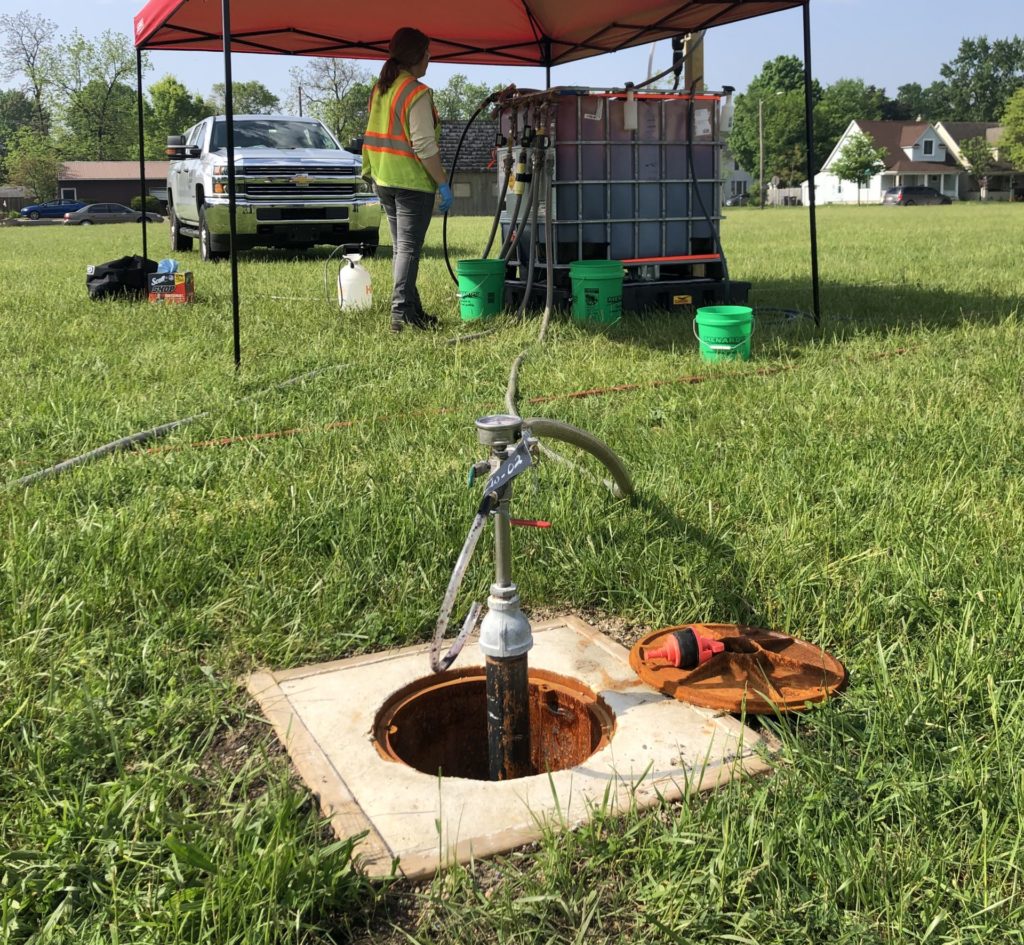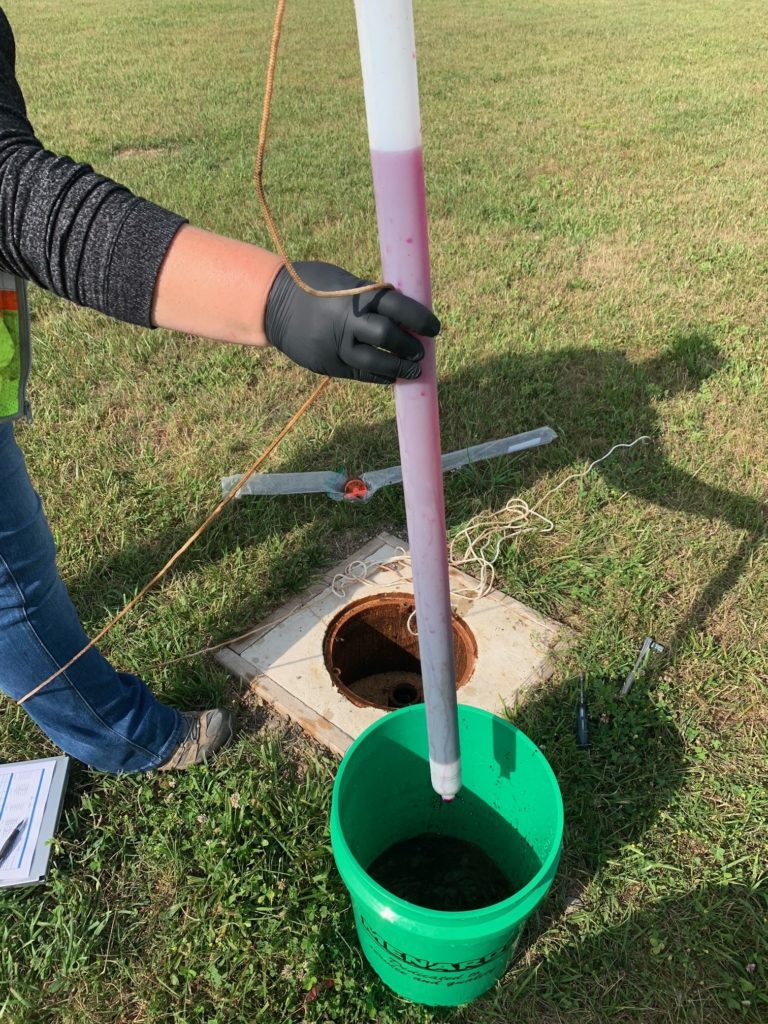Emergency Response Actions at Arctic North Warning System Radar Station
Confidential Client – Arctic Emergency Response Action, Wastewater Treatment System Design, Construction, Installation, Testing, Optimization […]
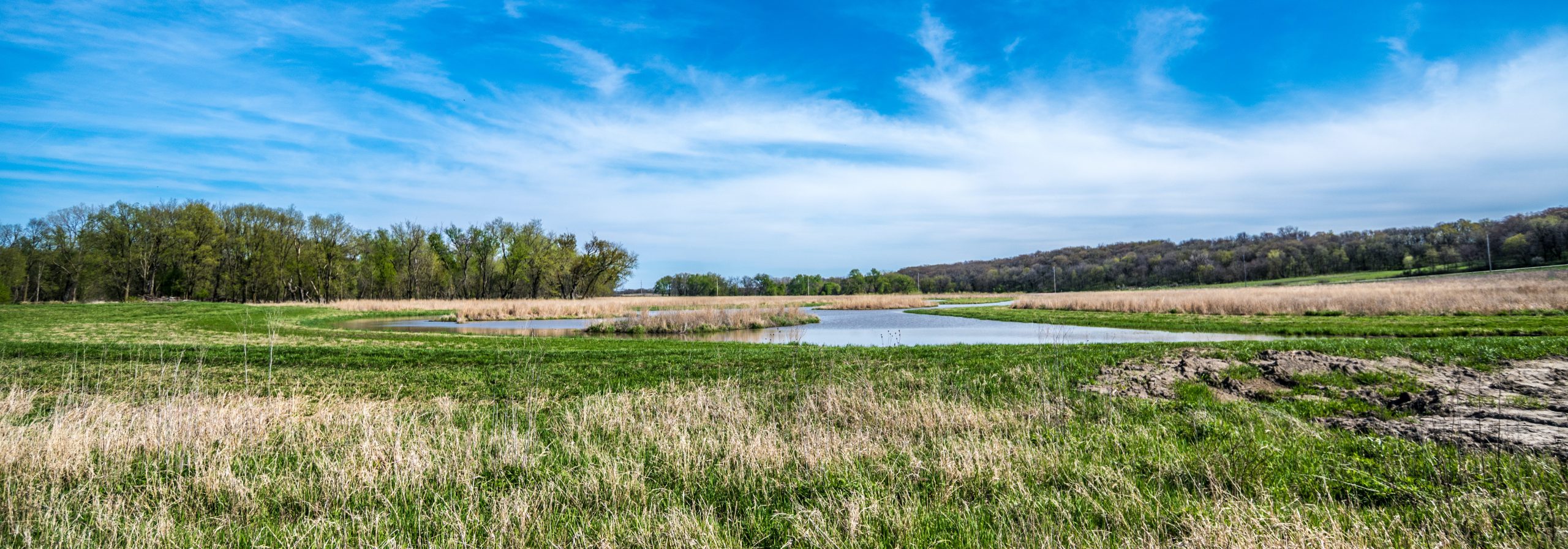
In-Situ Chemical Oxidation Remediation Program implemented concurrently with Soil Vapor Extraction for the Remediation of Chlorinated Solvents for a Municipally owned property acquired through a tax sale and funded through Federal and State Revolving Loan Funds and Grants
Weaver Consultants Group (WCG) provides top to bottom turn-key remedial services from strategy discussions and funding support through design, construction, implementation, and operation, maintenance, and monitoring (OMM) at a formerly blighted property in a mixed-use, underserved area of Elkhart, IN, with an extensive manufacturing history dating back to the 1800s. The 3.7-acre property (the Site) was first occupied by the Elkhart Carriage and Harness Manufacturing Company in 1892 and later used by many tenants for a wide variety of commercial and industrial purposes, including automobile and piano manufacturing, until 2004. The City of Elkhart acquired the Site through a tax sale in September 2012. Two separate fires occurred in August and October of 2012 that heavily damaged the vacant buildings, which the City of Elkhart razed in early 2013.
On behalf of the City of Elkhart, WCG has investigated, characterized, and completed receptor mitigation measures at the Site since 2013. This included on-site assessments and up and downgradient investigations to characterize the extent of off-site Chlorinated Volatile Organic Compound (CVOC) groundwater impacts, specifically trichloroethene (TCE). Beginning in 2016, WCG initiated vapor intrusion assessments at affected properties and installed vapor intrusion mitigation systems (VIMS) with associated monitoring and maintenance. At the request of the Indiana Department of Environmental Management (IDEM), WCG completed quarterly monitoring to evaluate CVOC migration and plume stability. In 2020, WCG and the City of Elkhart elected to remediate the on-site source area to manage the liability and costs associated with ongoing quarterly monitoring and receptor mitigation without addressing the source.
WCG prepared a Remediation Work Plan (RWP), approved by the Indiana Brownfields Program, to address CVOCs within groundwater and vadose zone soil. Due to site geologic conditions (medium to coarse grained sands, associated high hydraulic conductivity, and the impacted unsaturated vadose zone), an in-situ chemical oxidation (ISCO) program was proposed to focus on the impacted groundwater in combination with a soil vapor extraction (SVE) program to focus on the impacted vadose soil at the Site. WCG focuses on remediating groundwater impacted with recalcitrant CVOCs within the shallow alluvial water-bearing zone. WCG specializes in the remediation of recalcitrant chlorinated hydrocarbons from characterization through design, construction, and implementation, which is at the core of our expertise. The primary goals for this project are source area treatment, mitigating the potential for downgradient migration, and maintaining the protectiveness of human health and the environment.
The City of Elkhart lacked the discretionary funding to implement the IDEM-requested remediation program. Partnering with the City of Elkhart, Indiana Finance Authority, and Indiana Brownfields Program, WCG supported the City of Elkhart’s exploration of alternative funding sources. WCG and the stakeholders ultimately secured $500,000 in U.S. EPA Brownfields Revolving Loan Fund (RLF) Subgrant funds and an additional $332,100 in IDEM subgrant funding through the federal American Recovery and Reconstruction Act (ARRA) to implement the remedial program and return the Site to beneficial use.
Before initiating remediation activities, WCG completed various U.S. EPA Brownfields programmatic activities, including Community Relations and Planning, Quarterly Reporting, and Disadvantaged Business Enterprise (DBE) procurements. DBE procurements exceed the contract minimum of 7% and are currently allocated at 47%.
Following the implementation of the ISCO/SVE pilot test in May 2022, sodium permanganate (NaMnO4) ISCOinjections within the source area continue to maintain a highly oxidative environment conducive to the destruction of CVOCs. The SVE system has exhibited positive influences, effectively removing an appreciable amount of CVOCs in unsaturated vadose zone soils. Based on the findings of the pilot testing, the remedial program will be expanded to increase the number of SVE wells and implement semi-annual NaMnO4 ISCO injections.
WCG continually demonstrates our technical capability and approach to optimized design, communication, and operation strategies while maximizing clients’ financial resources. WCG proposed implementing a pilot test of the selected industry-accepted remedial technologies to demonstrate the program’s efficacy to public stakeholders before incurring most capital expenses. Additionally, through client-focused decision-making, real-time optimization provided savings of over $35,000 over the three-year remedial program, demonstrating WCG’s values of efficiently utilizing public funding and providing added value to clients by expending the maximum amount of funds for on Site remediation and source mass reduction.
